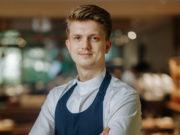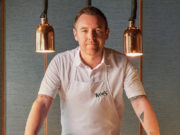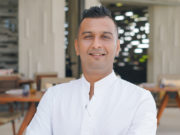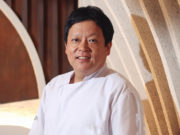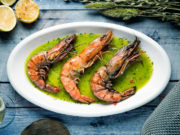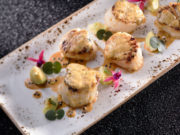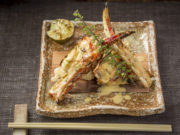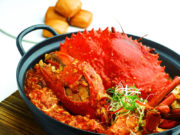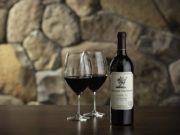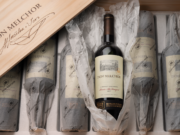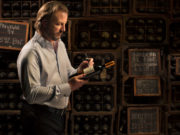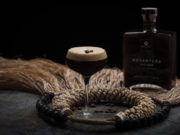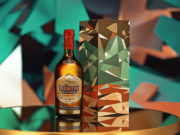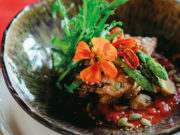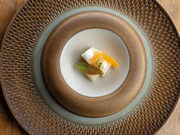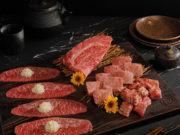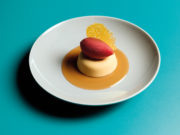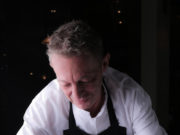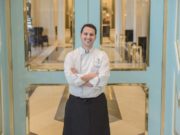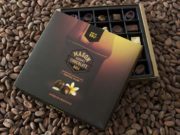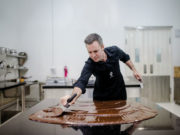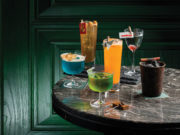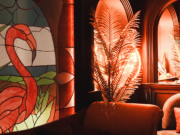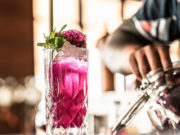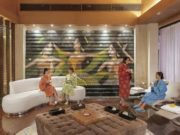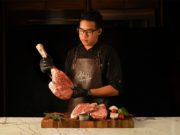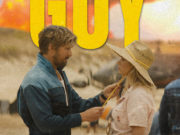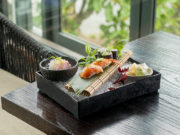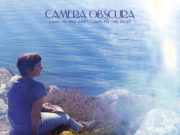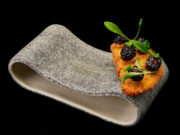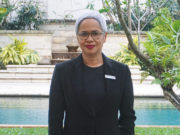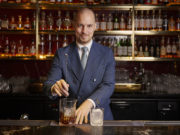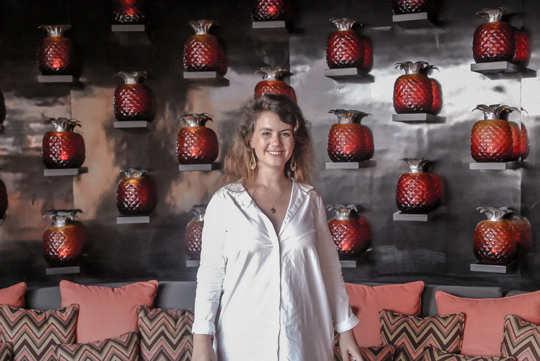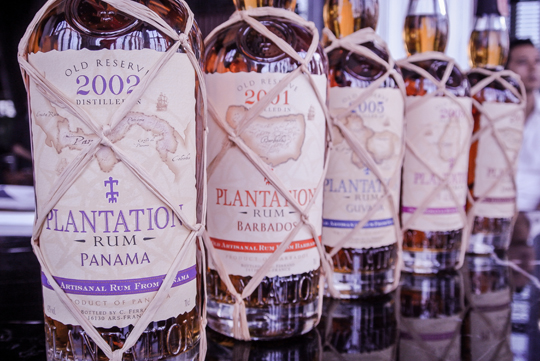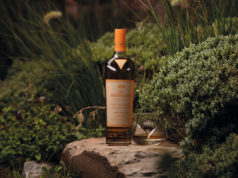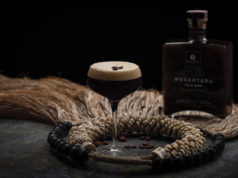Offering a range of classic artisanal spirits, Cognac Ferrand is considered to be one of the world’s premier boutique producers of fine spirits, with brands including the Plantation Rums. Recently Exquisite Taste managed to catch up with the charming Claire Bruere, at Robert Marchetti The Plantation Grill in Seminyak, Bali, following the Plantation Rum master class.
Q: What was it that first attracted you to Cognac Ferrand and what were you doing before?
A: I chose the company because I wanted to make a difference and after I met with Alexandre Gabriel the first time I was convinced this was the right place. He is surrounded by very gifted people and has a special charisma and personality and, I think, this is reflected in the quality and style of spirits we create.
I went to business school and most of my friends went off to work in big companies and after graduation I too applied for a position with Bacardi in London. Although I enjoyed it, I really like more autonomy and freedom. So, after one year, I decided to leave and go bartending in New Zealand.
When I returned to France I started to look for a position in a smaller company; a place where I felt I could make a difference and bring something new.
In Cognac, we have a lot of small spirit companies and after I discovered the current president and owner/founder of Maison Ferrand, Alexandre Gabriel, I was totally amazed by his vision, so I sent an application letter asking to work for him.
For the first few months I was living in Cognac, close to the production team, and was involved with them every day. It was an excellent education! Eventually I was offered the job of marketing manager and progressively I became responsible for many of our companies in Europe and now Asia-Pacific.
Q: Asia-Pacific Representative of Plantation Rum—impressive, but what does the role entail?
A: I was in charge of Europe and, one day, my husband asked me to go to Cambodia where he had been offered a good opportunity. I called Alexandre and told him, you know I have to follow my husband, but I don’t want to leave my babies (the rums) so I would like to develop the Asia-Pacific market.
Going to Cambodia is not like moving to Singapore or Hong Kong, it’s a huge challenge, but Alexandre called me back two days later and said, “at Ferrand we don’t do everything traditionally, so let’s do it”. We only had customers in Singapore, Australia and New Zealand, and some Chinese partners. So the first task was to find people we can rely on to carry our product to a wider audience, we needed people who are passionate about rum and can speak with knowledge but also from the heart.
Because Asia-Pacific is so big and the cultures so diverse, I need to understand what is going to work and what specific marketing strategy is required. We don’t produce mass market rum; it’s more haute couture, just like our approach to selling, and whilst we are at the early stages, I have already opened in 10 more countries last year.
Q: What is your strategy for Indonesia?
A: For Indonesia, this is my first trip so I am still discovering what we should do. My distributor has been doing a good job catching the attention of the right people.
To my understanding, Indonesia is a market where many people look at specific privilege; the beauty of Plantation is that we have so many quality products in the range and we can even design and offer them some specific batches for total exclusivity. Our best ambassadors are the bartenders, so we always focus on them.
Q: So this is why you are having the master class for the bartenders, so they can understand and be familiar with the product?
A: Yes, absolutely. We are doing the same tomorrow in Jakarta, focusing on people who we think are the future of the industry.
Q: What is rum?
A: I would like to answer with something very specific, but in my heart I think the beauty of rum is that it can be so many things. Each country has its own tradition; it’s about the soul and the place where sugarcane grows. This is why I love rum so much. It is really reflective of each culture, its history.
Q: There has been a lot of debate in the industry about the addition of sugar to rum. What route does Plantation Rum follow and why?
A: A big question… The beauty of the rum industry today is that the legislation is relaxed and that helps make the rum industry very interesting and diverse.
Our position at Plantation Rum is that we shouldn’t be too dogmatic but should instead think about how you do it. When it comes to sugar, if we look at the historical background of rum, as with many spirits, champagne and wines of the time, the rum of the 18th century was much sweeter than it is today.
So at Plantation Rum, we think sugar is very interesting and important, but it has to be done properly, because in some rums, sometimes you just tend to get the addition of caramel at the end, but if you do it with historical methods, you can have something really amazing.
Q: That makes sense, so how do you feel about non-sugared rums?
A: If you do not have extra sugar, your rum can be very good, but also it’s possible you are missing some potential. For us, it is just a matter of how much sugar you are integrating and how you are doing that. It is however a big question; perhaps you have heard about 15 countries in the Caribbean working together to find solutions. My president has already offered to make a classification, maybe like for champagne, instead of writing how much sugar is in the rum, it would be better to say this rum is a brut or natural or whatever it is.
Q: When you are out at a bar, what do you drink?
A: If they have good cognac, because I think it is a difficult cocktail, I would drink a Sazerac. It’s hard to make, it must have good balance, not too much dilution. My option B, because most of the time they don’t have the cognac I like, is of course a rum old-fashioned.
Q: Last but not least, Alexandre Gabriel and the team have brought us some remarkable spirits over the last few decades—do you have a personal favourite?
A: The Pierre Ferrand 1840! Sipping cognac neat in big glasses is from the 20th century. In the 19th century, it was sweeter and so Pierre Ferrand 1840 was designed this way to bring back the product that bartenders used when they created many of the original classic cocktails.
I was not a cognac drinker before I started work here, why? Well because in France it is considered old-fashioned to drink cognac but history is rich with cognac cocktails and I like that very much.
(www.plantationrum.com)


